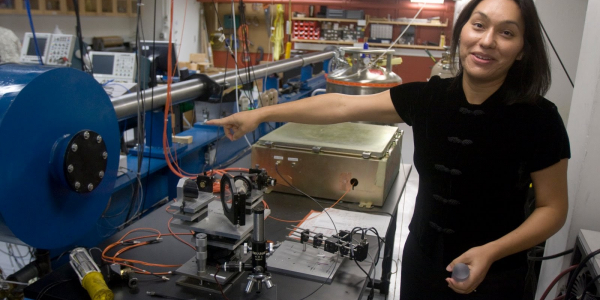Colloquium: Can Collisions Create Earth's Isotopic Cousin?
All the planets in our Solar System are mixtures from different source materials, which can be identified by their distinct isotopic compositions. Under conventional ideas of planet formation, the growing planets should diverge in composition from the original primitive planetesimals. However, Earth has isotopic cousins – enstatite chondrites and the Moon-forming impactor – that formed long before Earth’s accretion was complete. Here, I explore the role of collisions and planet migration in creating small to large bodies with similar isotopic compositions. During planet formation, collision velocities surpassed the thresholds for the onset of vaporization of all the major chemical components: ices, iron alloys, and silicates. Laboratory shock-and-release experiments can now re-create the pressure-temperature paths during vaporizing collisions, enabling measurements in regions of phase space that are inaccessible by static techniques. Using lab-validated equation of state models, my group’s studies of vaporizing collisions have discovered new phenomena during planet formation that may explain major questions about the origin of Earth and its isotopic cousins.

